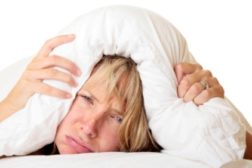Home » exercise
Articles Tagged with ''exercise''
U.S. doctors lead in wellbeing, transportation workers lag
Farmers, foresters get most exercise
April 4, 2013
Poll: Quit sitting around -- exercise your way to a good sleep
But insufficient sleep affects activity level
February 26, 2013
Increase your physical activity
Make physical activity a regular part of your day
December 18, 2012
"Biggest Loser" study finds modest diet and exercise can sustain weight loss
NIH research shows exercise as key in reducing body fat while preserving muscle
October 16, 2012
Become a Leader in Safety Culture
Build your knowledge with ISHN, covering key safety, health and industrial hygiene news, products, and trends.
JOIN TODAYCopyright ©2025. All Rights Reserved BNP Media.
Design, CMS, Hosting & Web Development :: ePublishing







